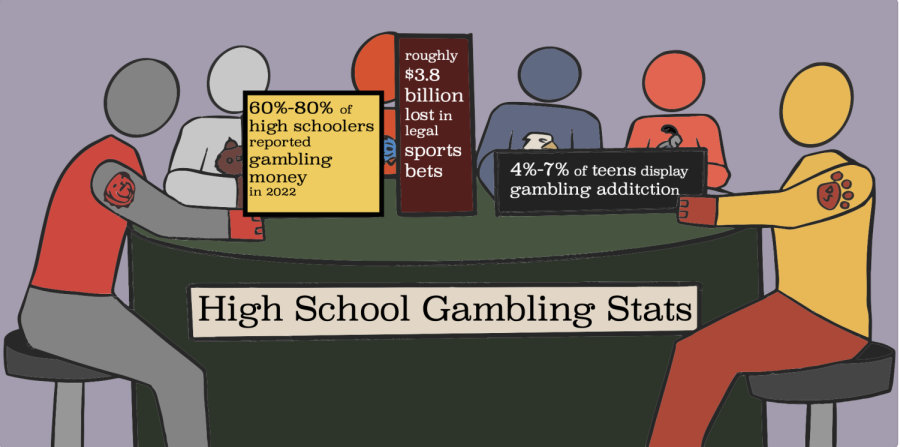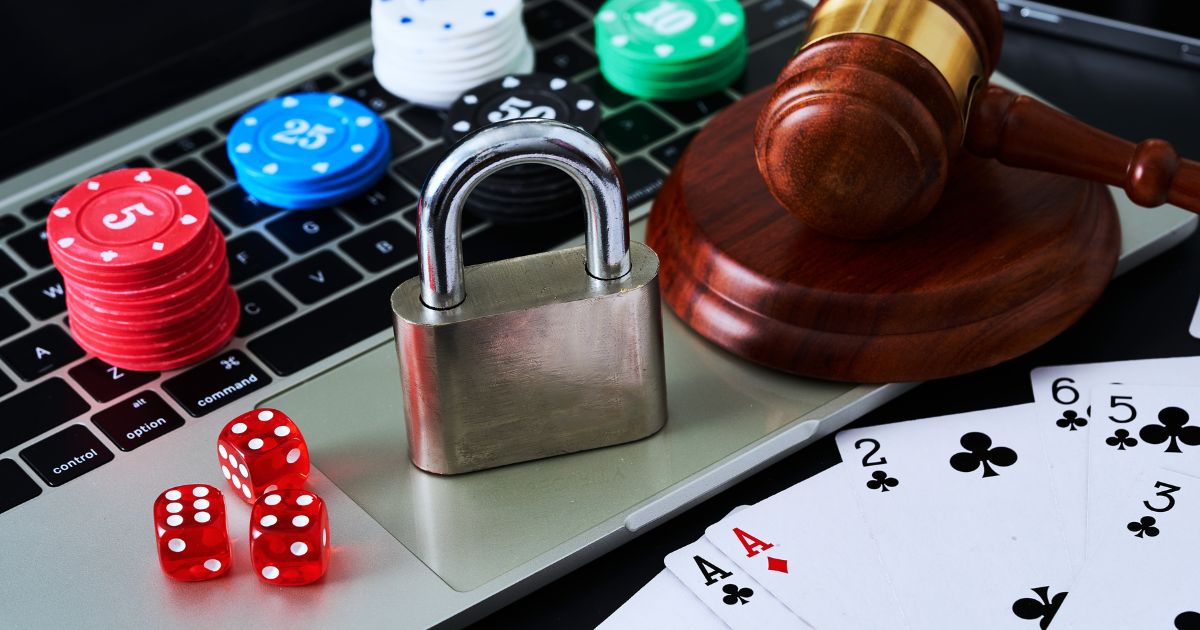What is the Punishment for Online Gambling in the US? Legal Risks Revealed
The punishment for online gambling in the US varies by state. It can include fines, imprisonment, or both. Online

The punishment for online gambling in the US varies by state. It can include fines, imprisonment, or both.
Online gambling laws in the US are complex and vary significantly across states. Some states have legalized and regulate online gambling, while others impose strict penalties. Illegal online gambling can lead to severe consequences, including hefty fines and possible jail time.
Federal laws like the Unlawful Internet Gambling Enforcement Act (UIGEA) also play a role in regulating online gambling activities. Understanding state-specific regulations is crucial for anyone considering online gambling. Staying informed about the legal landscape helps avoid potential legal issues and ensures a safe and enjoyable experience. Always check local laws to stay compliant and gamble responsibly.

Legal Status Of Online Gambling
The legal status of online gambling in the US can be confusing. Different rules exist at both the federal and state levels. Understanding these can help you avoid legal trouble.
Federal Laws
Federal laws on online gambling are strict. The most important law is the Unlawful Internet Gambling Enforcement Act (UIGEA). This law was passed in 2006. It prohibits the transfer of money to online gambling sites.
Another key law is the Wire Act of 1961. This law bans all forms of interstate betting. It was originally aimed at sports betting. But, its scope has been debated over the years.
State Regulations
Each state has its own rules on online gambling. Some states allow it, while others ban it completely. Here’s a quick look at a few states:
| State | Status |
|---|---|
| Nevada | Legal for poker |
| New Jersey | Legal for all forms |
| Washington | Illegal |
Nevada allows online poker but not other forms of gambling. New Jersey is more lenient, allowing all types of online gambling. In contrast, Washington has banned it completely.
Always check your state’s specific laws. This ensures you stay within legal boundaries.
Potential Penalties
Online gambling in the US can lead to serious consequences. Different states have different laws. Offenders face various penalties. Let’s explore the potential penalties in more detail.
Fines
Fines are a common penalty for online gambling. The amount can vary widely. It depends on the state and the specific offense.
- First-time offenders may face smaller fines.
- Repeat offenders often face higher fines.
- Fines can range from a few hundred to thousands of dollars.
For example, in some states, fines can reach up to $10,000. Always check your local laws to understand the specific fines.
Imprisonment
Imprisonment is a harsher penalty for online gambling. Offenders can be jailed depending on the severity of the crime.
- First-time offenders may face shorter jail terms.
- Repeat offenders can face longer sentences.
- Imprisonment can range from a few days to several years.
In some states, jail terms can be up to five years. Always know your state laws to understand the risks of imprisonment.
| Penalty Type | First-Time Offender | Repeat Offender |
|---|---|---|
| Fines | Up to $1,000 | Up to $10,000 |
| Imprisonment | Up to 6 months | Up to 5 years |
Both fines and imprisonment can be very serious. Always be aware of the local laws on online gambling.
Impact On Criminal Record
Online gambling can have serious effects on your criminal record. Understanding the difference between a misdemeanor and a felony is crucial. Both can affect your future in different ways.
Misdemeanor Vs Felony
A misdemeanor is a less severe crime compared to a felony. For online gambling, a misdemeanor might involve smaller fines and shorter jail time. A felony, however, is a more serious offense. It often comes with heavier fines and longer prison sentences.
| Offense | Consequences |
|---|---|
| Misdemeanor | Smaller fines, shorter jail time |
| Felony | Heavier fines, longer prison sentences |
Long-term Consequences
Both misdemeanors and felonies can have long-term consequences. A criminal record can affect job opportunities. It can also affect housing options and loan applications.
- Job Opportunities: Many employers check criminal records.
- Housing Options: Landlords may deny applications.
- Loan Applications: Banks might hesitate to give loans.
Having a criminal record can also affect personal relationships. Friends and family might view you differently. It can be hard to regain trust.

Enforcement Agencies
Online gambling laws in the US are enforced by various agencies. These agencies work together to ensure compliance and prevent illegal activities. Understanding the roles of these agencies is crucial for anyone involved in online gambling.
Federal Authorities
At the federal level, several authorities are responsible for enforcing online gambling laws. The FBI is one of the primary agencies. They focus on stopping illegal online gambling operations.
The Department of Justice (DOJ) also plays a key role. They oversee the enforcement of federal laws related to gambling. The DOJ has the authority to prosecute illegal gambling activities.
Another important agency is the Federal Trade Commission (FTC). They monitor advertising and consumer protection issues. The FTC ensures that online gambling sites do not deceive customers.
State Agencies
Each state has its own agencies to enforce online gambling laws. These agencies vary from state to state. In some states, the State Police handle gambling enforcement.
Other states have specific Gaming Commissions. These commissions regulate and oversee all gambling activities within the state. They ensure that operators follow state laws and regulations.
Some states also have Attorney General’s Offices. These offices can prosecute illegal online gambling cases. They work closely with other state and federal agencies.
The roles of these state agencies are crucial. They ensure that state-specific gambling laws are enforced effectively.
| Agency | Role |
|---|---|
| FBI | Investigates and stops illegal gambling |
| DOJ | Prosecutes illegal gambling activities |
| FTC | Monitors advertising and consumer protection |
| State Police | Enforces state gambling laws |
| Gaming Commissions | Regulates state gambling activities |
| Attorney General’s Offices | Prosecutes state-specific gambling cases |
Legal Loopholes And Exemptions
Online gambling laws in the US are complex. There are several legal loopholes and exemptions that can influence the punishment for online gambling. Understanding these can help navigate the legal landscape.
Skill-based Games
Some games are considered skill-based. These games often fall into a grey area. Players argue they rely on skill rather than chance. This can make them exempt from gambling laws.
- Poker
- Chess
- Bridge
In these games, the outcome depends more on the players’ skills. Courts often treat them differently from games of pure chance.
Fantasy Sports
Fantasy sports are another area with legal exemptions. These games involve creating virtual teams. Users earn points based on real-world player performances. The Unlawful Internet Gambling Enforcement Act (UIGEA) of 2006 allows fantasy sports.
| Feature | Description |
|---|---|
| Skill-based | Teams require knowledge of player stats |
| Legal | Exempt under the UIGEA |
Fantasy sports rely on player knowledge and strategy. This makes them different from traditional gambling.

Frequently Asked Questions
Is Online Gambling Illegal In The US?
Online gambling legality varies by state. Some states allow it, while others have strict regulations.
What Are The Penalties For Online Gambling?
Penalties for online gambling can include fines and jail time, depending on state laws and the severity of the offense.
Are Online Casinos Legal In The US?
Online casinos are legal in some states. Check your state’s specific regulations to ensure compliance.
Can You Get Arrested For Online Gambling?
Yes, you can get arrested for online gambling in states where it is illegal. Always check local laws.
Conclusion
Understanding the legal consequences of online gambling in the US is essential. Penalties can vary by state and severity. Always check your local laws before engaging. Staying informed can help you avoid legal trouble. By adhering to regulations, you can enjoy safer online gambling experiences.















